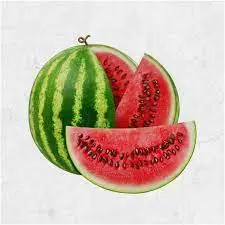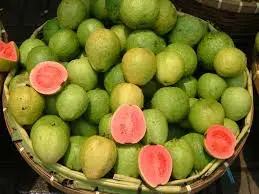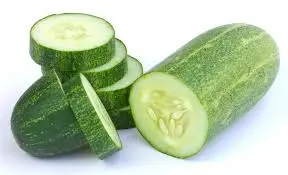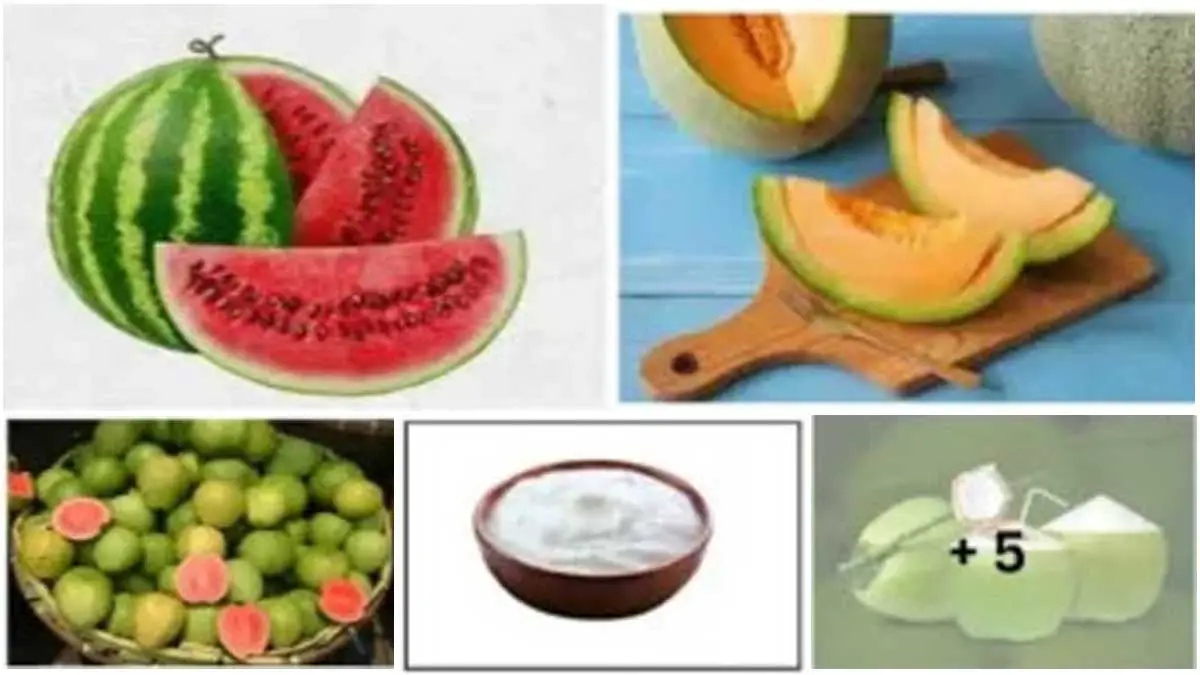Always we need to be healthy, specially in summer season there is a problem called dehydration we faced and to overcome the problem by taking some foods we can stay hydrated. So here is a collection of summer best foods.
Table of Contents
Summer Best Foods:
1. Watermelon

Watermelon is a nutritious and delicious fruit that can provide several health benefits when consumed as part of a balanced diet.
- Hydration: As the name suggests, watermelon is an excellent source of water, and it can help keep you hydrated. It is made up of 92% water, which makes it an ideal snack to quench your thirst and replenish lost fluids during hot weather or exercise.
- Nutrient-rich: Watermelon is also rich in vitamins and minerals such as vitamins A, C, and B6, potassium, and magnesium. These nutrients are important for maintaining good health and preventing diseases.
- Antioxidant properties: Watermelon contains antioxidants such as lycopene, beta-carotene, and vitamin C, which help protect cells from damage caused by free radicals. This can help reduce the risk of chronic diseases such as cancer and heart disease.
- Anti-inflammatory: Watermelon also contains anti-inflammatory compounds such as cucurbitacin E, which can help reduce inflammation in the body and alleviate pain.
- Digestion: Watermelon contains fiber, which can help improve digestion and prevent constipation.
2. Melon

Melons are a nutritious and refreshing fruit that can be enjoyed in many ways and offer several health benefits.
- Hydration: Like watermelon, melons are high in water content, which makes them a great choice for staying hydrated during hot weather or exercise.
- Digestion: Melons are rich in fiber, which can help improve digestion and prevent constipation.
- Versatility: Melons can be enjoyed in many ways, such as raw, sliced, diced, or blended into smoothies or sorbets. They can also be grilled or roasted for a sweet and savory twist.
- Ripeness: When selecting a ripe melon, look for a sweet fragrance and a slightly soft feel when you press on the skin. Melons that are too hard may not be ripe, while those that are too soft may be overripe.
3. Guava fruit

Guava fruit, also known as “Amrood” in some countries, is a tropical fruit that is rich in nutrients and provides several health benefits.
- Rich in nutrients: Guava fruit is rich in vitamins C and A, potassium, fiber, and antioxidants. These nutrients are important for maintaining good health and preventing diseases.
- Boosts immunity: The high vitamin C content in guava fruit can help boost your immune system, protect against infections, and help heal wounds.
- Promotes digestion: Guava fruit is high in fiber, which can help promote healthy digestion and prevent constipation.
- Lowers blood sugar: Guava fruit has a low glycemic index, which means it can help regulate blood sugar levels and prevent spikes in blood sugar levels.
- Good for the skin: The high vitamin C content in guava fruit can also help improve skin health and prevent premature aging.
4. Curd

Curd, also known as yogurt, is a dairy product that has several health benefits, particularly during the summer season it also comes under summer best foods. Here are some benefits:
- Cooling effect: Curd has a cooling effect on the body, which makes it an ideal food to consume during the hot summer months. It can help lower body temperature, reduce heat-related illnesses and prevent dehydration.
- Good for digestion: Curd is rich in probiotics, which are beneficial bacteria that can help improve gut health and aid digestion. This can help prevent common digestive issues such as bloating, constipation, and diarrhea.
- Rich in nutrients: Curd is a good source of protein, calcium, and vitamin D, which are important nutrients for maintaining strong bones and teeth, supporting the immune system, and promoting overall health.
- Helps regulate blood pressure: Curd is low in sodium and high in potassium, which can help regulate blood pressure levels and prevent hypertension.
- Boosts immunity: The probiotics in curd can also help boost the immune system, which can help prevent infections and illnesses during the summer months
5. Lemon juice

Lemon juice is the juice extracted from fresh lemons, which are sour citrus fruits that are a good source of vitamin C and other nutrients. Here are some key facts about lemon juice:
- Nutrition: Lemon juice is a good source of vitamin C, which is important for supporting the immune system and promoting overall health. It also contains small amounts of other vitamins and minerals, including potassium and vitamin B6.
- Acidic pH: Lemon juice is highly acidic, with a pH of around 2. This acidity can have both positive and negative effects on the body, depending on how it is consumed.
- Culinary uses: Lemon juice is a popular ingredient in cooking and baking, as it can add flavor and acidity to dishes. It is also commonly used as a condiment or garnish, such as in lemonade, salad dressings, or cocktails.
- Health benefits: Lemon juice is believed to have several health benefits, such as improving digestion, detoxifying the body, and supporting weight loss. However, more research is needed to confirm these effects.
6. Coconut water

Coconut water is a clear, sweet liquid found inside young green coconuts. It is a popular beverage in many tropical countries and is known for its refreshing taste and numerous health benefits. Here are some key facts of coconut water:
- Hydration: Coconut water is high in electrolytes, such as potassium and sodium, which makes it an effective rehydration beverage after exercise or in hot weather. It can also help prevent dehydration and heatstroke.
- Digestion: Coconut water is rich in fiber and can help improve digestion and prevent constipation. It may also have a mild laxative effect.
- Lowers blood pressure: Coconut water may help lower blood pressure levels due to its high potassium content, which helps counteract the negative effects of sodium on blood pressure.
7. Cucumber

Cucumbers are a type of vegetable that are low in calories and high in water content. They are popular in salads and as a snack, and have several health benefits.
Cucumbers are highly beneficial in the summer season due to their high water content and cooling properties.
8. Grapes

Green grapes, also known as white grapes, are a type of grape that are commonly found in grocery stores and used in a variety of culinary applications.
Grapes can be a nutritious and hydrating fruit that can provide several health benefits when consumed as part of a balanced diet during the summer season.
9. Pineapple

Pineapple is a tropical fruit that is popular worldwide for its sweet and tangy flavor, as well as its nutritional benefits. Here are some interesting facts about pineapple:
- Origin: Pineapple is native to South America, specifically Brazil and Paraguay, and was first domesticated by the indigenous peoples of the region.
- Nutritional value: Pineapple is a good source of vitamin C, manganese, and dietary fiber. It also contains bromelain, a group of enzymes that can help digest proteins and reduce inflammation.
- Growing conditions: Pineapples are grown in tropical climates and require warm temperatures and plenty of sunlight. They are typically grown in fields or on plantations and can take up to two years to produce a mature fruit.
- Appearance: Pineapples have a tough, spiky exterior and a fleshy interior that is yellow or white in color. The fruit is made up of many small, individual fruits called “fruitlets” that are fused together.
- Culinary uses: Pineapple is commonly used in a variety of culinary applications, including as a topping for pizza or in fruit salads, smoothies, and desserts. It is also a popular ingredient in savory dishes such as stir-fries and curries.
10. Sugarcane juice

Sugarcane juice can be a refreshing and healthy drink option during the summer season. Here are some reasons why:
- Hydration: Sugarcane juice is rich in water, which can help keep the body hydrated and prevent dehydration during hot weather.
- Nutritional value: Sugarcane juice contains several important nutrients, including vitamins C and B6, calcium, potassium, and iron. These nutrients can help support overall health and wellbeing.
- Energy boost: Sugarcane juice contains natural sugars, which can provide a quick energy boost without causing a spike in blood sugar levels.
- Digestive health: Sugarcane juice contains compounds that can help regulate digestion and prevent constipation. It can also help promote the growth of beneficial gut bacteria, which can support overall digestive health.
What are the other problems we face in summer season?
- Heat exhaustion: Prolonged exposure to high temperatures can cause heat exhaustion, which can lead to symptoms such as heavy sweating, weakness, nausea, and dizziness.
- Sunburn: Increased exposure to sunlight can cause sunburn, which can lead to redness, blistering, and pain in the affected areas.
- Skin problems: The heat and humidity during the summer season can also lead to skin problems such as rashes, prickly heat, and fungal infections.
- Respiratory problems: High temperatures and humidity can aggravate respiratory problems such as asthma and allergies.
- Food poisoning: High temperatures and humidity can cause food to spoil quickly, leading to food poisoning if consumed.
- Insect bites and stings: The summer season is also a time when insects such as mosquitoes, bees, and wasps are more prevalent, which can result in bites and stings.
- Eye problems: The increased exposure to sunlight can also cause eye problems such as dry eyes, itching, and burning sensations.

